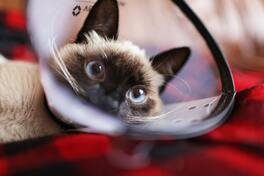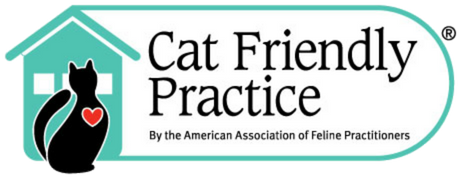 Springtime showers bring springtime flowers, and with Easter right around the corner, lilies will be making their way into homes. Most Species of Lily Should be Avoided Lilies, specifically all species of Lilium (true lily), including Easter lily, Tiger lily, Asiatic lily, and others, as well as Hemerocallis (day lily) are toxic and potentially life-threatening to cats. Small amounts from these plants, like 1-2 petals or leaves, water from the vase, and even pollen groomed off the fur, can result in severe, acute kidney failure and death  Other plants with ‘lily’ in the name, such as lily of the valley, peace lily, and calla lilies, also have toxic effects and are considered dangerous for cats. They can cause drooling, foaming, vomiting, and respiratory distress. Why are Lilies Dangerous? The exact toxin in Lilium and Hemerocallis lilies has not been identified yet, which is what makes them so dangerous. If your cat ingests any part of the flower, including pollen or water, kidney damage can occur within 24-72 hours. Lily of the Valley and Gloriosa or Flame Lily contain specific toxins that can cause life-threatening arrhythmias and even death when ingested. It’s important to avoid bringing these into your home as well. Less dangerous are the Calla, Peace, and Peruvian lilies. They still contain toxins like insoluble oxalate crystals and tulipalin A that can cause direct side effects but are not nearly as dangerous as those listed previously.  Signs to Look For The safest thing for your cat is to not bring any type of lily into the house. However, if your cat ingests any part of a ‘lily’ plant, they may need immediate veterinary care. Certain signs to look for include:
Symptoms of poisoning often develop within 6-12 hours of ingestion but can show up sooner as well.  Treatment Plans There is no antidote for lily poisoning, so the sooner you can bring your cat in for care, the better the chance they have to make a full recovery. Decontamination such as inducing vomiting or giving drugs like activated charcoal are necessary in addition to IV fluids and kidney monitoring tests. If left untreated, acute kidney failure will develop and be fatal for your cat. If you have concerns that your cat may have come into contact or ingested a lily, please contact us right away. You can also reach out to BluePearl Emergency and Referral Medicine (952-942-8272) or Pet Poison Hotline (855-764-7661). If a veterinary visit is necessary, please bring the plant you suspect your cat ingested as well so we can identify the specific lily variety and course of action that will need to be taken. Lilies are a beautiful flower, but best kept away from your feline friends. If you have a cat that likes to jump onto tables or counters, or likes to investigate new things, we suggest skipping lilies for other springtime, cat-safe plants such as Gerbera daisies, sunflowers, snapdragons, and zinnias. Comments are closed.
|
Categories
All
Archives
November 2022
|
|
Plymouth Sun Sailor 2019 and 2020
Readers' Choice Best Veterinary Clinic |
Clinic Hours
Monday - 9:00 am - 6:00 pm Tuesday - 9:00 am - 6:00 pm Wednesday - 9:00 am - 6:00 pm Thursday - 9:00 am - 6:00 pm Friday - 9:00 am - 6:00 pm |
|
Site powered by Weebly. Managed by IDEXX Laboratories

 RSS Feed
RSS Feed



